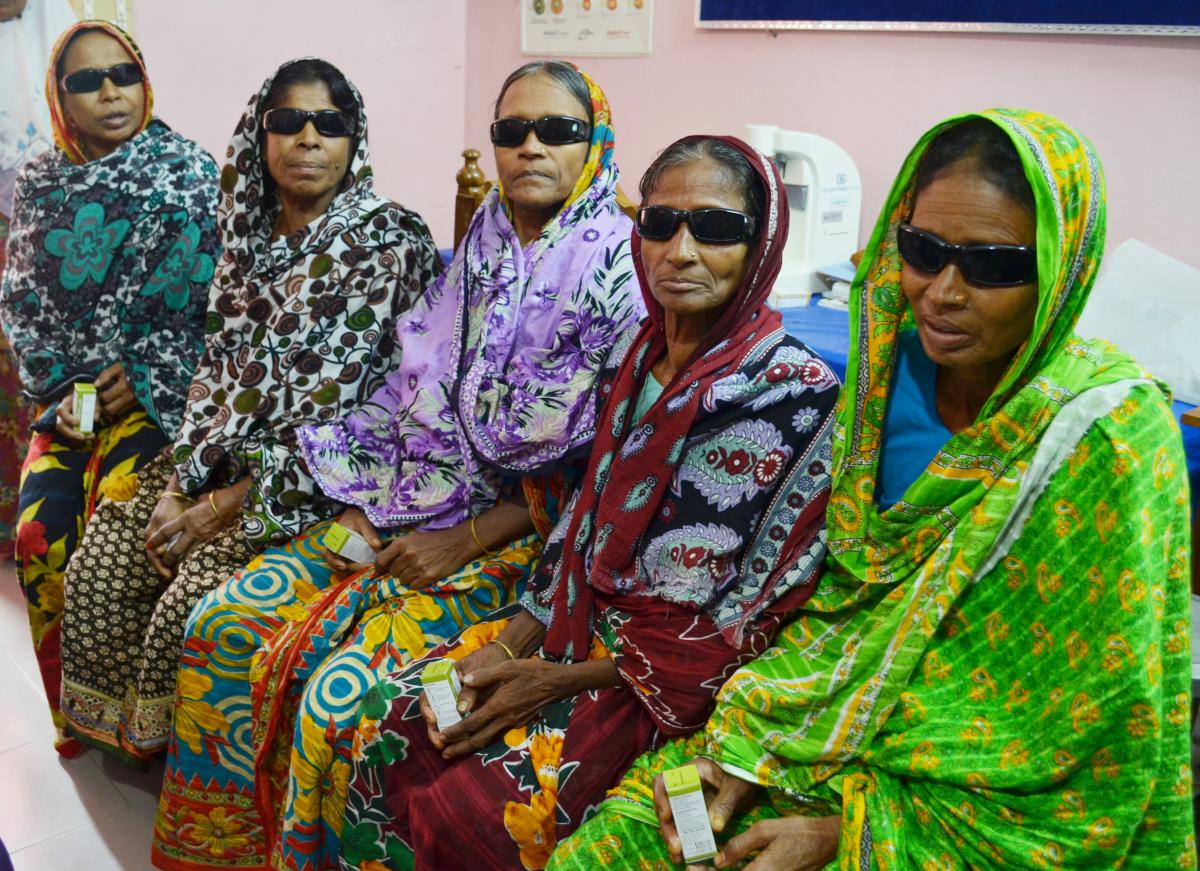Join a powerful, unprecedented alliance for better eye health for all.
Join IAPB-
Choose an alternate language here
On the occasion of International Women’s Day, the Fred Hollows Foundation (courtesy Alison Carmody, Zara Khair and Bonnie Skinner) shines light on the work they are doing in Bangladesh to make eye care more accessible for women.

Women in rural Bangladesh following an outreach eye camp/ Photo courtesy: The Fred Hollows Foundation
Standard Chartered Bank’s “Seeing is Believing” programme is supporting The Fred Hollows Foundation to provide ground-breaking solutions to help women access eye care in Bangladesh.
“There was no reliable, recent data but we knew there was a huge barrier for women to receive eye treatment,” said Dr Zareen Khair, Bangladesh Country Manager for The Fred Hollows Foundation. “In 2016, we worked with our partners to collect data from 2,400 households to get a baseline of insights.”
“The Gender Analysis and Knowledge, Attitude and Practice Survey”, was the first of its kind in Bangladesh and contributes significantly to the evidence base nationally and globally.
Zahanara, 60, from Barisal, was one of the respondents. Her left eye had been completely deformed, causing continuous pain and headaches, while she had progressively lost vision in her right eye. After three years of suffering, Zahanara had gone completely blind.
After initially seeking local medical advice and receiving the incorrect treatment, Zahanara consulted homeopathic practitioners before foregoing treatment altogether. When an eye camp was held near her village, the doctor advised her to visit a hospital in Barisal city but she decided not to take up the treatment. She and her family were worried that the treatment would be expensive, and her family could not support her travel and treatment costs.
The survey data is revealing that these experiences and barriers are a common story for women.
“We worked with partners and experts to devise innovative solutions that systematically targeted each barrier,” said Dr Khair. “It became clear that solutions had to be locally based. A good example – one we are implementing this year – is working with local pharmacists to educate them on eye care and ‘upskill’ them to provide eye checks. Many women will frequent their local chemist, so it is a place where knowledge sharing and basic care are easily accessible and free.”
In addition, conducting focus group discussions with elderly women’s groups has increased knowledge around access to eye care services. Further eye health promotion activities are planned for groups within the community including religious groups, fishermen, farmers and traditional birth attendants.
The team is also working with all levels of the eye health professionals to ensure women are guided through the different levels of referral and treatment more easily. This includes implementing separate waiting areas and post-operative wards specifically for women. Systems which use electronic tokens to manage long queues have been introduced in the public hospitals which provide for more gender equitable service delivery.
Through this project, the team and its implementing partners continue to hold remote eye camps to reach rural women like Zahanara. In 2016, more than 80,000 eye screenings and referrals, and 5,400 cataract surgeries were performed.
Also read : International Women’s Day